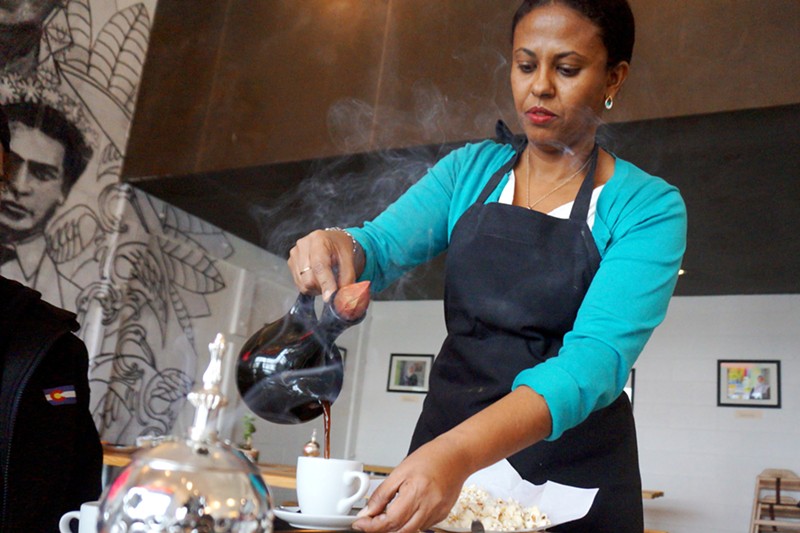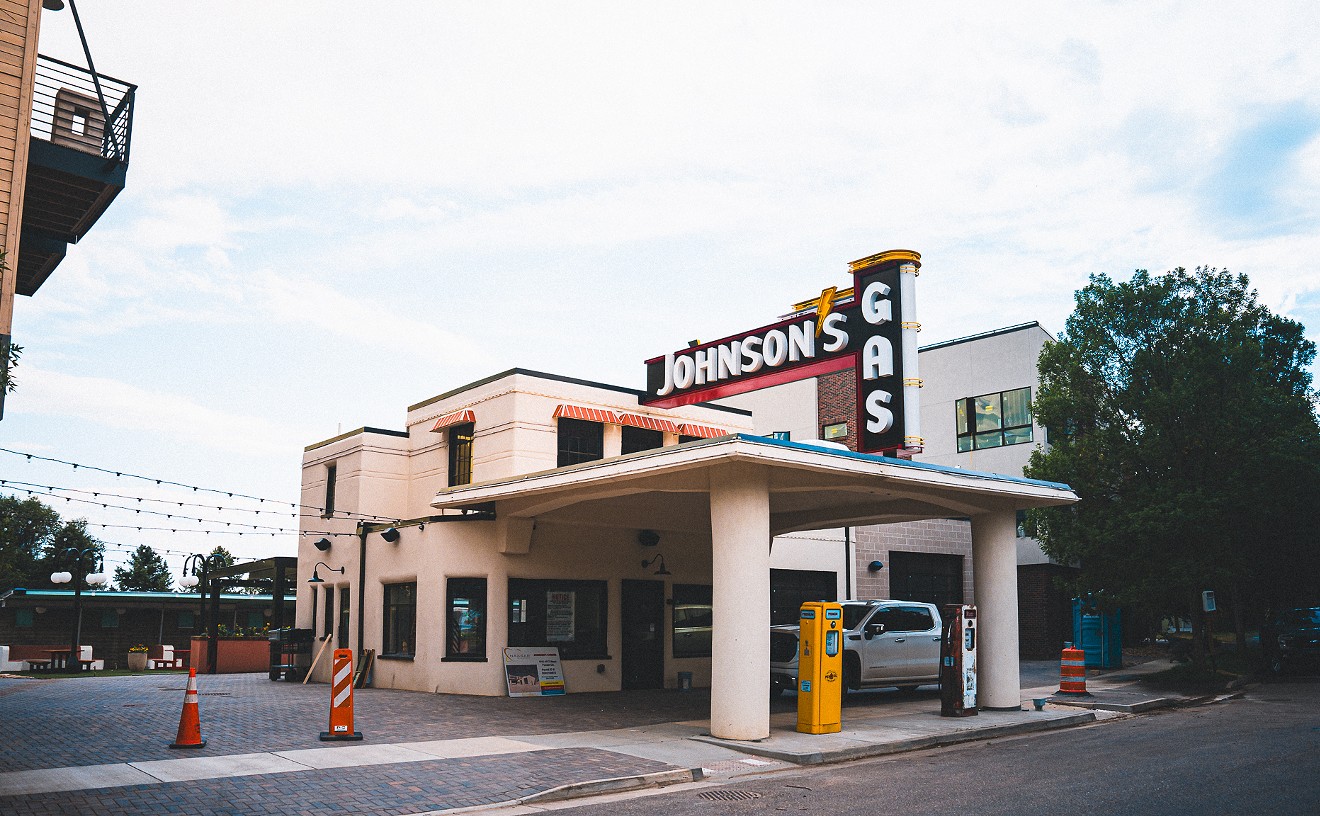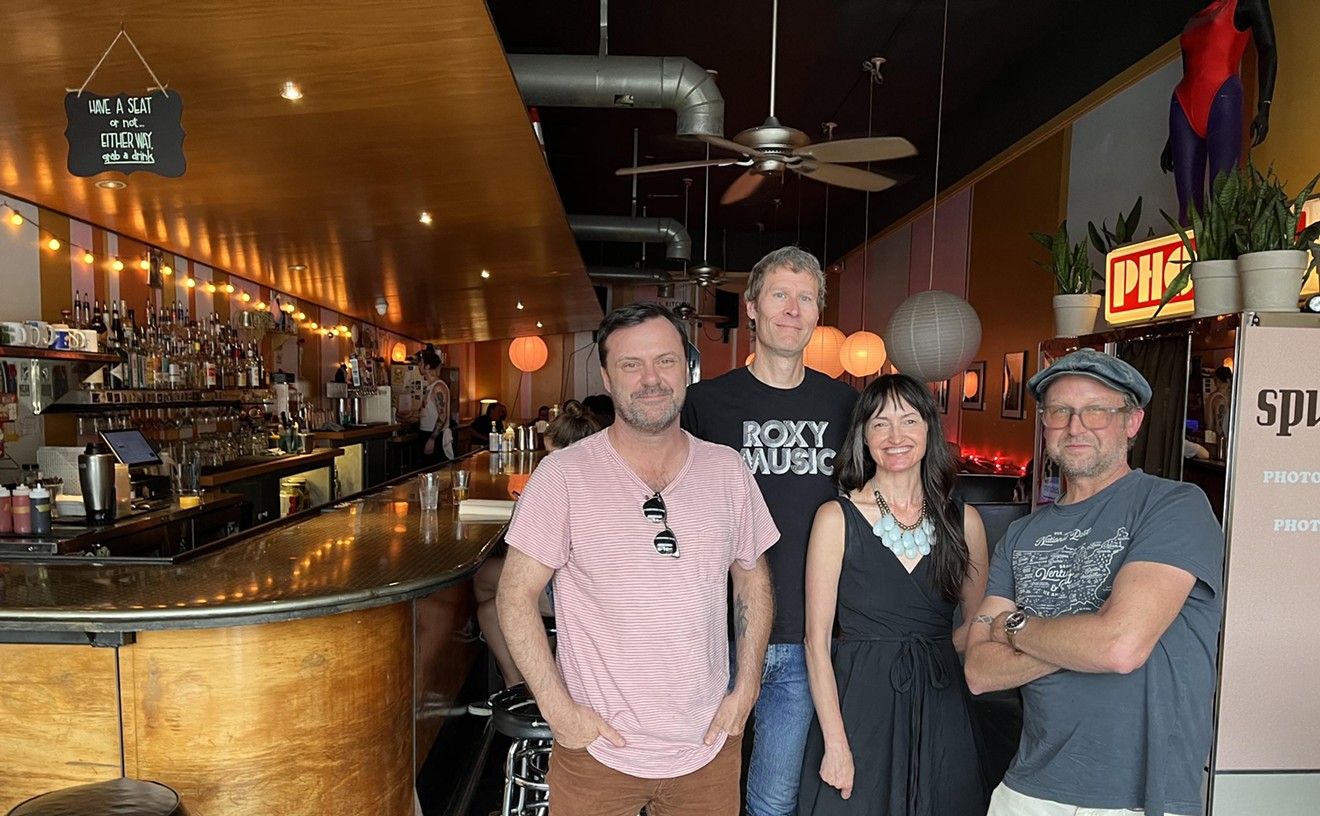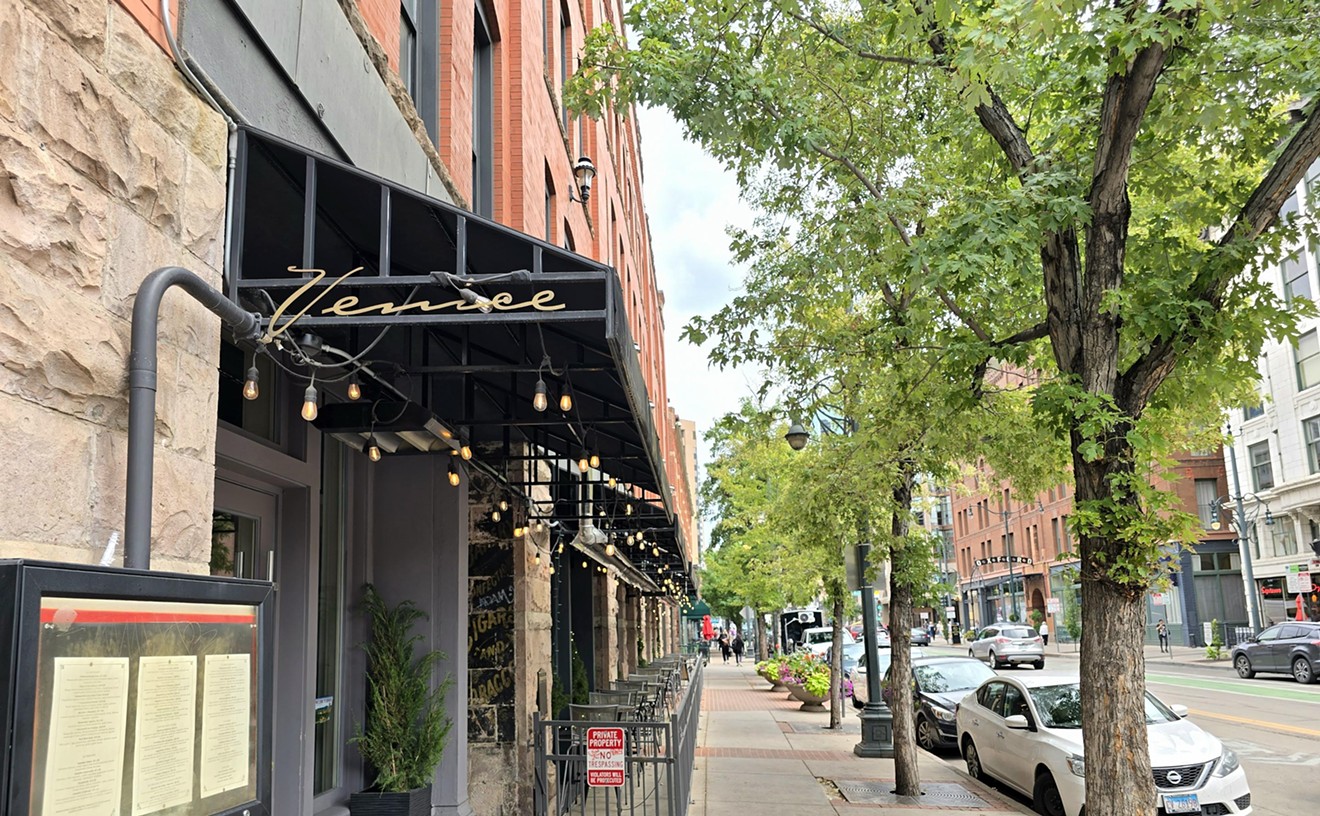Thanks to Comal Heritage Food Incubator, we now have one more culinary word in our lexicon: jebena. The lunchtime restaurant at 3455 Ringsby Court in the Taxi development is named for the large, flat cooking surface used to cook tortillas and other Mexican fare. But starting Thursday, December 14, it will also begin displaying a jebena — a round-bottomed clay coffee pot used in traditional Ethiopian coffee ceremonies.
Sara Gebre, a native of Ethiopia who now lives in west Denver, has signed on with Comal to offer Ethiopian coffee and the food that goes with it every Thursday from 2:30 to 5 p.m. The ceremony involves much more than pouring coffee for guests. Gebre roasts and grinds coffee beans for each service and pours the rich brew from the jebena alongside such snacks as sugared popcorn and toasted barley with peanuts. She says she soon plans to add more dishes, including injera (the ubiquitous sourdough flatbread of her home country), lentil and split-pea stews and other vegetable-based fare.
"The coffee goes with the food; it's part of our culture," she says, explaining that food and coffee together are a celebration of family and community. Important matters are discussed over the ceremony, which traditionally involves three rounds — called abol, tona and bereka — of adding hot water to the same grounds, so that the first pot is strongest and the last the weakest. The ceremony shows respect for both the coffee and the guests being served, Gebre notes.
Coffee varies from region to region in Ethiopia and coffee makers have their personal preferences, so Gebre has been sourcing her beans from the same grower for years. The coffee she brews is rich and strong, but with little bitterness and no burnt flavors. Milk or cream are not part of the ceremony, but many Ethiopians like their coffee with sugar, she notes. Four-ounce cups are presented on a silver platter; the clay pot rests on a woven base to keep it from tipping over.
The aroma of coffee and incense combine for a relaxing experience and a lovely mid-day break (as well as a pick-me-up for those looking for a caffeine infusion after nearby Black Black Coffee closes at 2 p.m.).
Gebre's eventual goal is to open an Ethiopian coffee shop near her home, since the neighborhood bordered by Federal Boulevard currently lacks Ethiopian options (you'll have to head east on Colfax Avenue and along Havana Street in Aurora for that). For now, she'll be at Comal every Thursday, and other afternoons could be added as business allows.
Comal is the project of Focus Points, a nonprofit organization dedicated to workforce development in Globeville and Elyria-Swansea. The restaurant employs neighborhood residents while teaching them skills to open their own businesses and serves traditional Mexican fare Monday through Thursday, switching to Syrian cuisine on Fridays.
[
{
"name": "Air - MediumRectangle - Inline Content - Mobile Display Size",
"component": "12017618",
"insertPoint": "2",
"requiredCountToDisplay": "2",
"watchElement": ".fdn-content-body",
"astAdList": [
{
"adType": "rectangle",
"displayTargets": "mobile"
}
]
},{
"name": "Editor Picks",
"component": "17242653",
"insertPoint": "4",
"requiredCountToDisplay": "1",
"watchElement": ".fdn-content-body",
"astAdList": [
{
"adType": "rectangle",
"displayTargets": "desktop|tablet"
},{
"adType": "rectangle",
"displayTargets": "desktop|tablet|mobile"
}
]
},{
"name": "Inline Links",
"component": "18838239",
"insertPoint": "8th",
"startingPoint": 8,
"requiredCountToDisplay": "7",
"maxInsertions": 25
},{
"name": "Air - MediumRectangle - Combo - Inline Content",
"component": "17261320",
"insertPoint": "8th",
"startingPoint": 8,
"requiredCountToDisplay": "7",
"maxInsertions": 25,
"watchElement": ".fdn-content-body",
"astAdList": [
{
"adType": "rectangle",
"displayTargets": "desktop|tablet"
},{
"adType": "rectangle",
"displayTargets": "desktop|tablet|mobile"
}
]
},{
"name": "Inline Links",
"component": "18838239",
"insertPoint": "8th",
"startingPoint": 12,
"requiredCountToDisplay": "11",
"maxInsertions": 25
},{
"name": "Air - Leaderboard Tower - Combo - Inline Content",
"component": "17261321",
"insertPoint": "8th",
"startingPoint": 12,
"requiredCountToDisplay": "11",
"maxInsertions": 25,
"watchElement": ".fdn-content-body",
"astAdList": [
{
"adType": "leaderboardInlineContent",
"displayTargets": "desktop|tablet"
},{
"adType": "tower",
"displayTargets": "mobile"
}
]
}
]
















